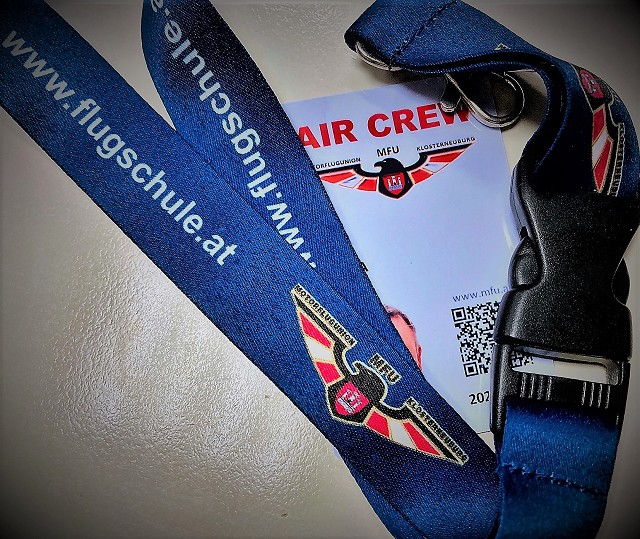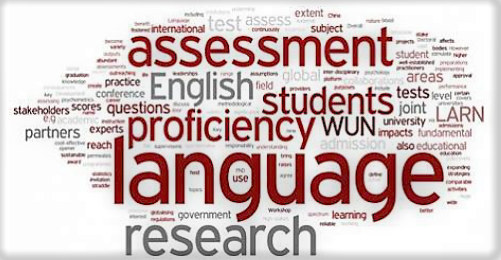-
PPL(A)-Kurs
sofort ab 2024 -
ATPL(A)-Kurs Nahunterricht
auf Anfrage 06 2024 -
TMG-Ausbildung
sofort ab 2024 -
NR-Night Rating-Kurs
sofort ab 2024 -
MEP(A)-Land-Kurs
sofort ab 2024 -
SEP(sea)-Wasserflugkurs
2 6 2024 -
AFZ-Flugfunk-Kurs
10 06 2024 -
Instructor-Refresher FI
Frag ab 2024 -
CRI(SPA)-Kurs
Frag ab 2024 -
FI(A)-Fluglehrer-Kurs
Frag ab 2024 -
UPRT-Kurs
sofort ab 2024 -
Kunstflugberechtigung-Kurs
sofort ab 2024 -
Drohnen-Aufbaukurs A1/A3
0 - 0
Language Proficiency / Sprachbefähigung
Zweck der Sprachbefähigungsüberprüfung
Die Internationale Zivilluftfahrtorganisation (ICAO) verlangt gemäß Annex 1 (Personnel Licensing) für bestimmte Lizenzkategorien und Berechtigungen seit dem 5. März 2008 den Nachweis, dass die im Flugfunk verwendeten Sprachen ausreichend beherrscht werden, um sich auch in Situationen, welche nicht ausschließlich mit der Standardphraseologie beschrieben werden können, ausreichend verständigen zu können.
Der ICAO Language Proficiency Test, welcher innerhalb der Europäischen Union verbindlich eingeführt wurde, dient zum Feststellen der sprachlichen Befähigung eines Piloten. Die Bewertung erfolgt in so genannten “Levels” zwischen 1 (schlechtester Wert) und 6 (bester Wert). Das Minimalerfordernis für englischen Funksprechverkehr im Ausland ist der Level 4.
FCL.055 Language proficiency
(a) General. Aeroplane, helicopter, powered-lift and airship pilots required to use the radio telephone shall not exercise the privileges of their licences and ratings unless they have a language proficiency endorsement on their licence in either English or the language used for radio communications involved in the flight.
The endorsement shall indicate the language, the proficiency level and the validity date.
(b) The applicant for a language proficiency endorsement shall demonstrate, in accordance with Appendix 2 to this Part, at least an operational level of language proficiency both in the use of phraseologies and plain language. To do so, the applicantshall demonstrate the ability to:
(1) communicate effectively in voice-only and in face-to-face situations;
(2) communicate on common and work-related topics with accuracy and clarity;
(3) use appropriate communicative strategies to exchange messages and to recognise and resolve misunderstandings in a general or work-related context;
(4) handle successfully the linguistic challenges presented by a complication or unexpected turn of events which occurs within the context of a routine work situation or communicative task with which they are otherwise familiar; and use a dialect or accent which is intelligible to the aeronautical community.
Rev:18-Jan-2019-V09
This consolidated document containing the implementing rules of Commission Regulation (EU) No 1178/2011 (the Aircrew Regulation), includes the initial issue of and all subsequent amendments to this Regulation, irrespective of their applicability date. It is an EASA unofficial courtesy document, intended for the easy use of stakeholders, and is meant purely as a documentation tool. The Agency does not assume any liability for its contents. Whilst every effort has been taken to ensure the accuracy of the information in this document, if necessary, for the avoidance of doubt the source material should be consulted. Any feedback on this document should be provided to fcl@easa.europa.eu.
(c) Except for pilots who have demonstrated language proficiency at an expert level, in accordance with Appendix 2 to this Part, the language proficiency endorsement shall be re-evaluated every:
(1) 4 years, if the level demonstrated is operational level; or
(2) 6 years, if the level demonstrated is extended level.
(d) Specific requirements for holders of an instrument rating (IR) or en-route instrumentrating (EIR). Without prejudice to the paragraphs above, holders of an IR or an EIR shall have demonstrated the ability to use the English language at a level which allows them to:
(1) understand all the information relevant to the accomplishment of all phases of a flight, including flight preparation;
(2) use radio telephony in all phases of flight, including emergency situations;
(3) communicate with other crew members during all phases of flight, including flight preparation.
(e) The demonstration of language proficiency and of the use of English for IR or EIR holders shall be done through a method of assessment established by the competent authority.
Remark: The demonstration is possible by any competent authority.
 Es geht also um die Ausübung der Rechte, worüber FCL.040 folgendes sagt:
Es geht also um die Ausübung der Rechte, worüber FCL.040 folgendes sagt:
The exercise of the privileges granted by a licence shall be dependent upon the validity of the ratings contained therein, if applicable, and of the medical certificate as appropriate to the privileges exercised.
Wann soll der Language Proficiency Test durchgeführt werden?
Aktuell ist bei einer IR/SE-Prüfung die Frage aufgetreten, ob ein Anwärter beim Skill-Test einen gültigen LPC nachweisen muss, oder ob dieser erst bei Ausstellung erforderlich ist.
- Da der Anwärter die Berechtigung noch nicht hält, kann er also auch die Rechte nicht ausüben, weshalb folglich ist ein Prüfungsflug problemlos möglich ist, sofern der Prüfer die Rechte (inkl. LPC) hält. Analog wird ja auch bei der Ausbildung und beim PPL-Skill-Test verfahren - dort hat der Schüler auch noch keinen Language Proficiency Eintrag (weder Deutsch, noch Englisch), da er noch überhaupt keine Lizenz hält und die PPL-Prüfung den Deutsch-Eintrag erst ermöglicht.
- Auch ist der Anwärter bei der Prüfung definitiv nicht PIC im legalen Sinn - er hat ja auch noch keine Berechtigung um als PIC tätig zu werden. Die Zeit ist entsprechend AMC1 FCL.050 (b)(1)(ii) nur als SPIC anrechenbar, sofern die Prüfung ohne Eingreifen bestanden wird. Ein Examiner ist ja auch Instructor:
- ‘Student pilot-in-command’ (SPIC) means a student pilot acting as pilot-in-command on a flight with an instructor where the latter will only observe the student pilot and shall not influence or control the flight of the aircraft.
- Auch ist anzumerken, dass bei einer nicht bestandenen Prüfung die gesamte Flugzeit nicht als PIC geschrieben würde und nicht wie bei einem PIC-Wechsel ein Teil dennoch.
- Zuletzt wäre auch noch der Vergleich zur Anforderung an ein Medical heranzuziehen - dieses ist auch erst bei Ausstellung erforderlich.
Ausland:
Sinnvollerweise wird der ICAO Language Proficiency Test erst nach Erwerb des AFZ/EFZ Funksprechzeugnisses abgelegt.
Österreich - Inland:
Im Moment verlangt AUSTRO CONTROL im Inland bei aufrechtem AFZ oder EFZ keinen Eintrag des Language Proficiency Tests. bzw. finden sich auf deren Homepage widersprüchliche Aussagen.
Strittig ist, ob das amtlich ausgestellte AFZ/EFZ alleine ausreicht - oder nicht.
Mittlerweile gibt es Möglichkeiten, den LP Level zu günstigeren Konditionen verlängern zu lassen, auch werden immer mehr Online-Tests angeboten. Im EASA-Raum ordnungsgemäß abgelegte LP-Checks sind teilweise weitaus billiger (unter 100€) als in Österreich und werden von der Austrocontrol anerkannt.
Eine Übersicht von Language Proficiency Testmöglichkeiten finden Sie auch unter https://www.austrocontrol.at/piloten/pilotenlizenzen/pruefungswesen/sprachkompetenz
Lizenzeintragung:
Der bei der Prüfung erreichte Level wird z.B. im Zuge einer Verlängerung oder Änderung in die Lizenz eingetragen.
Die Verlängerung der Gültigkeit der Sprachbefähigung kann innerhalb von 12 Monaten vor Ablauf der Gültigkeit mit einem unserer qualifizierten LPE durchgeführt werden. Kontaktieren Sie uns einfach diesbezüglich.
Bei dringenden Rückfragen stehen wir Ihnen gerne via Kontaktformular oder telefonisch zur Verfügung.